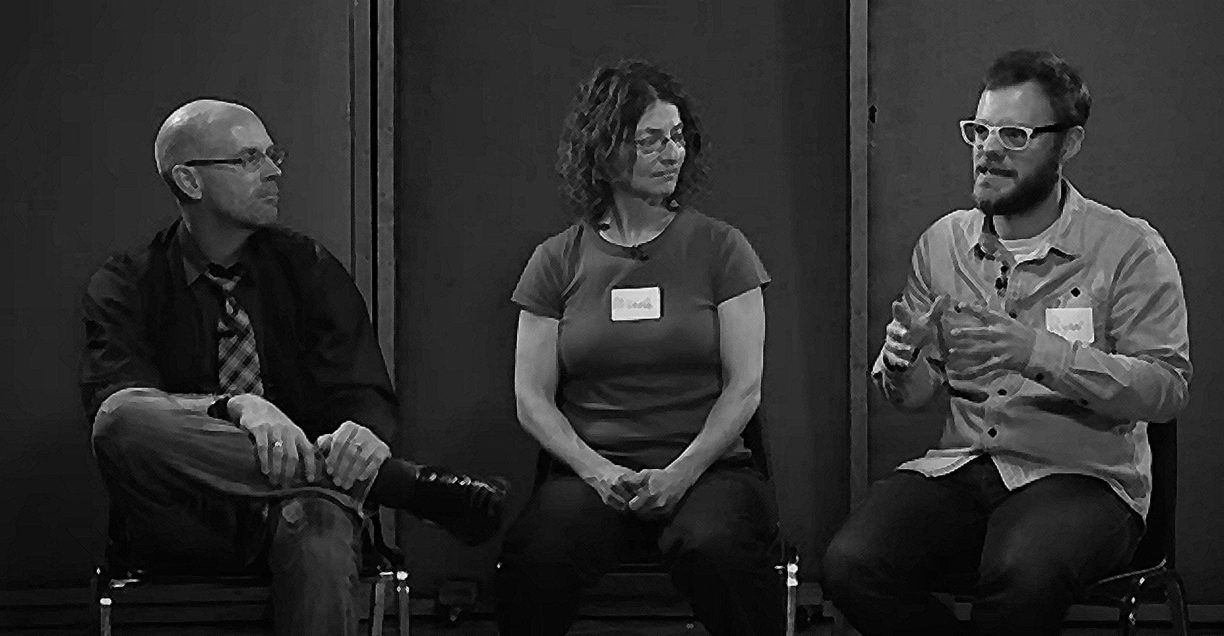
Group Therapy Can Be a Solution for Over-Crowded Prisons Rather Than a Technique of Shame at California Corrections
Governor Brown and his Attorney General, Kamala Harris, have the opportunity to make some changes in California Corrections, including eliminating a costly and unethical practice. A well planned and managed program of group therapy for prisoners placed on probation can be part of the solution for overcrowded prisons in California instead of its current use as a technique of shame.
Group therapy emerged as both a science and an art in the cities of Vienna and New York early in the last century. Its theory and practice reflected the core ideas of the Western Enlightenment: that human beings would be treated as equals and worthy of respect as they endeavored to change their lives by listening and learning from the lives of others. Participation in group therapy would be an act of personal liberation based on the development of trust and cooperation among its members.
Currently, these principles are all but obliterated by the techniques now foisted on some inmates by the California Department of Corrections under the guise of “group therapy.” Prisoners are assembled in separate “cages” (euphemistically called “therapeutic cubicles”) to which they are individually brought in chains by guards. The cages are plexiglass boxes and ostensibly “protect” the prisoners from each other. The so-called “group therapists”, who are not in cages, lead the assembly of caged prisoners in some activity. But whatever the activity, it in no way meets the criteria for group therapy defined above. What the citizens of California are paying for is a travesty of treatment, a form of degradation and humiliation that has no clinical justification whatever and has nothing to do with the goals of group therapy. Unfortunately, it is but one example of the mistreatment of the mentally ill in our prison system.
There are historical precedents for the maltreatment of the mentally ill in jails in the United States and individuals who challenged the authority of those who condoned the maltreatment. In 1841, Dorothea Dix confronted the Massachusetts legislature on the conditions in state prisons where the mentally ill were incarcerated. She cited evidence that inmates were subject to “cages and chains” among other persecutions. Her protest forced changes by the legislature and produced a wave of reform that swept the country and resulted in the first hospitals that sought to relieve the suffering of the mentally ill. As citizens, we have the choice to emulate the work of Dorothea Dix. Are we going to allow our institutions to regress to a standard of behavior that was deemed inappropriate and inhuman 172 years ago? If we allow this to happen, then who are we as a people? Is this how we wish to be seen by other nations — and is this the kind of world we want to pass on to our children?
The mentally ill must not be locked away in isolation as is currently the practice in our prisons — nor must they be locked in cages like animals. It does not matter if this technique is reserved for prisoners in administrative segregation or supermaximum security units which contain 6% to 8% of prisoners in the California Department of Corrections at any given time. No prisoner should ever have to endure such conditions and no judge should ever mandate such practices. If a prisoner is thought to be of danger to self or others, he is not a suitable candidate for group therapy and ought to be given an alternative form of clinical intervention. Legitimate forms of group therapy can play a significant role in helping prisoners who will be paroled as a result of the Supreme Court decision. Many of those now incarcerated suffer from mental illnesses that have gone untreated by appropriate methods.
We call on Governor Brown and his Attorney General to stop this circus of caged prisoners immediately and undertake bona fide treatment of mentally ill prisoners in California as they are released from incarceration.
An effective program of group therapy for prisoners placed on probation will allow many of them to reajust themselves to life on the outside and significantly reduce recidivism.
Read more about the benefits of group therapy here.
Bill Roller, Life Fellow, American Group Psychotherapy Association
Philip Zimbardo, Professor Emeritus of Psychology, Stanford University
Bill Roller is a Fellow of the American Group Psychotherapy Association and past Ethics Chair of the International Association of Group Psychotherapy and Group Processes.
www.thepromiseofgrouppsychotherapy.comhttp://www.thepromiseofgrouppsychotherapy.com
Philip Zimbardo is the producer of A Quiet Rage: The Stanford Prison Experiment.
An internationally renowned social psychologist, his life work was featured in an article in Science, Volume 332, 29 April 2011 ( See www.sciencemag.org).

